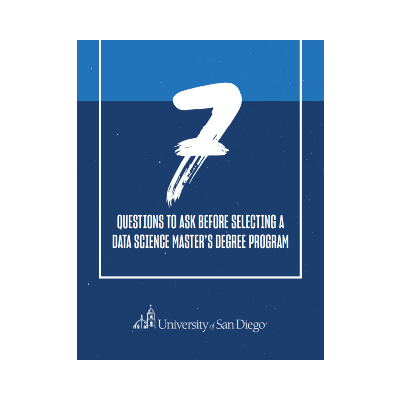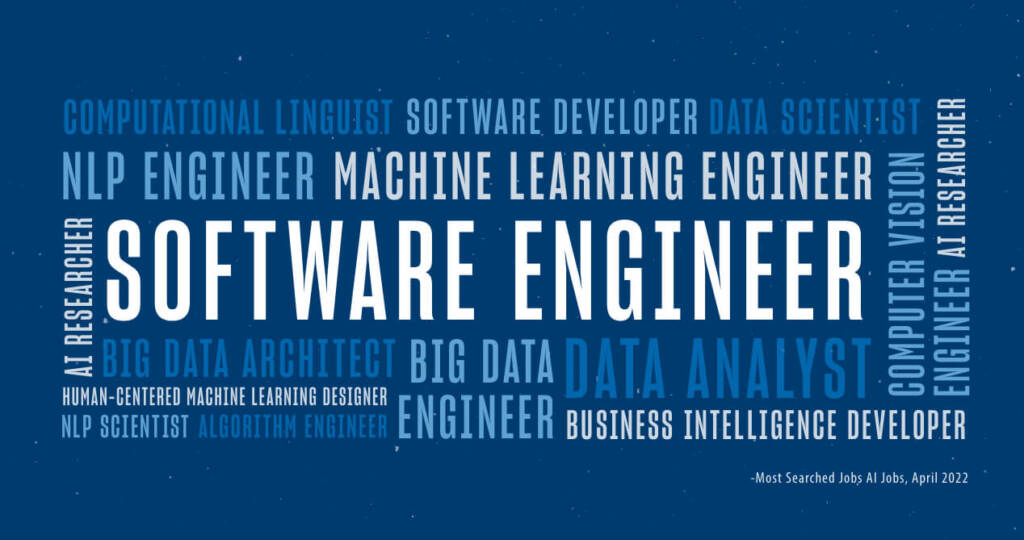Business intelligence is an up-and-coming field within the data science industry requiring high-skilled workers known as business intelligence (BI) engineers. As the amount of collected data rises exponentially, so does the need for software, applications and experts to manage all of it.
If you’re interested in the field of work, it’s important to learn about the most beneficial educational opportunities, including helpful hands-on experiences, to position yourself as a strong BI engineer applicant.
Keep reading for a complete guide, including job responsibilities, salary expectations, and a step-by-step process to land a job as a business intelligence engineer.
What Is Business Intelligence?
Business intelligence involves accumulating and analyzing all types of business data in order to present it in a comprehensible manner (think charts and reports).
Businesses can use this intelligence to make organizational decisions, identify potential issues and trends and find new opportunities. Here are some examples of business intelligence in practice:
- Starbucks analyzes a variety of data points, including population, traffic patterns and average income levels in order to figure out where to put their locations.
- Delta has spent more than $100 million in business intelligence to research how to improve baggage handling.
- Other well-known companies that use BI in various sectors include Uber, Twitter, Netflix, Lowe’s, Tesla, Chipotle and Coca-Cola.
What Does a Business Intelligence Engineer Do?
A BI engineer’s initial responsibility is securing data to be analyzed. Those efforts happen alongside business analysts and developers, with a shared end goal of creating reports for clients to utilize while making important business decisions. One of the main intentions of a BI engineer is to create data warehousing solutions — from collecting data to storing it — in a centralized repository.
According to LinkedIn job listings for BI engineers and related positions — of which there are thousands available — the following are crucial aspects of the work:
- Developing relationships with non-technical business stakeholders to understand their needs.
- Staying up-to-date on best practices for data capture and management to ensure quality work.
- Communicating effectively and professionally in order to demonstrate confidence.
- Understanding migration techniques, from on-premise to cloud platforms.
- Building dashboards in order to leverage advanced analytics.
- Solving complex data problems with the intent of helping businesses achieve their unique goals.
- Analyzing various data systems.
- Relying on past work experience to effectively overcome challenges.
- Proving proficiency in relevant, updated softwares and technologies.
- Creating data products by working collaboratively with analysts and developers.
Business Intelligence Engineer vs. Business Intelligence Analyst
Before embarking on your career as a BI engineer, it’s important to understand how you will interact with other tech professionals, as well as the differences between closely related roles.
The title of business intelligence engineer is often confused with a business intelligence analyst – and vice versa – because of their similar-sounding names, but there are distinct differences.
Business intelligence analysts are tasked with making sense of data, digging deep to discover useful information, identify trends and generate actionable business insights.
Business intelligence engineers are responsible for the technical aspects of data searches and collections, in addition to ensuring data quality, data governance and data security standards.
The two often require collaboration to achieve business intelligence outcomes. During the initial stages of a project, BI analysts explore a business’ needs, identify reporting requirements and look ahead to desired outcomes. BI engineers provide the logistical roadmap toward that solution by considering the organization’s data infrastructure.
What Is the Average Business Intelligence Engineer Salary?
It’s important to note that salaries vary depending on a number of factors, such as how much experience and education is required for a specific job, the position itself, the company or organization, location and more.
According to ZipRecruiter, the average annual BI engineer salary as of June 2023 was $116,556. The employment marketplace website reports the majority of salaries in the range between $96,500 and $134,000, with top earners in the 90th percentile earning $160,000 annually.
Skills & Education Needed
A bachelor’s degree in information systems or relevant technology disciplines, including business administration and economics, are widely sought by BI engineer employers. Competencies on the following list are also highly recommended:
- Lessons in SQL (Structured Query Language) for data querying and manipulation.
- Skills in data architecture, mining and visualization
- Certification by Microsoft’s Certified Solutions offerings
- Knowledge of SQL and PL/SQL scripting languages
- Educational background in engineering, computer science or a related field
- Strong analytical and communication skills
- Knowledge of data streaming principles
- Data modeling insights
Senior-level positions often require a master’s degree and particular certifications, of which there are many choices.
The University of San Diego offers a 100% online Master of Science in Applied Data Science degree, focused on preparing current and future tech experts for important work ahead.
[RELATED RESOURCE] Looking to elevate your BI engineering career? Get our guide to help you select the master’s program that aligns with your ambitions.
Steps to Becoming a Business Intelligence Engineer
Completing these five steps is a likely way to help you land a business intelligence engineer job:
- Earn a bachelor’s degree in a relevant field.
- Develop technical skills in database management.
- Gain business knowledge, as you will be working with business professionals and must understand their terminology and concepts.
- Explore certifications, such as a Microsoft Certified: Data Analyst Associate, Tableau Desktop Certified Associate or Oracle Business Intelligence Foundation Suite Certification.
- Pursue internship opportunities, entry-level positions or freelancing to start building a portfolio of work (and network of professional connections).
Companies Hiring Business Intelligence Engineers
Many businesses, including top-known names, incorporate BI engineers in their work in a variety of ways. They include:
- Nike
- Warner Bros. Discovery
- Chewy
- Roku Inc.
- Amazon
- Noom
- Humana
Now that you’re familiar with the requirements and duties of a business intelligence engineer, it’s time to consider your next steps. You can learn more about advanced degree options with USD’s free, downloadable checklist, “7 Questions to Ask Before Selecting an Applied Data Science Master’s Degree Program.”




